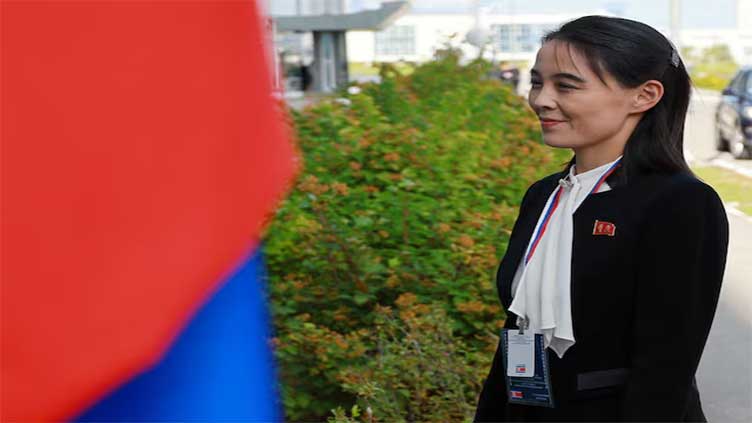North Korea leader's sister warns of new response against South's loudspeakers, leaflets

World
South Korea resumed loudspeaker broadcasts directed at North Korea on Sunday, its military said
SEOUL (Reuters) – The influential sister of North Korean leader Kim Jong Un warned of a new response against South Korea if the South kept on loudspeaker broadcasts and scattering leaflets amid simmering tensions.
"If the ROK simultaneously carries out the leaflet scattering and loudspeaker broadcasting provocation over the border, it will undoubtedly witness the new counteraction of the DPRK," Kim Yo Jong said in a statement late on Sunday carried by state news agency KCNA, using the official names of South and North Korea.
South Korea resumed loudspeaker broadcasts directed at North Korea on Sunday, its military said, following through on a warning demanding that Pyongyang stop sending balloons carrying trash into the South.
"This is a prelude to a very dangerous situation," said Kim, a vice department director in the ruling Workers' Party, referring to the South's loudspeaker broadcasts.
The decision to resume the broadcasts, as a form of psychological warfare, was made after North Korea began launching on Saturday about 330 balloons with trash attached, with about 80 of them dropping over the border, South Korea's military said.
Pyongyang started sending balloons carrying trash and manure across the border in May and has said the move was in retaliation for anti-North leaflets flown by South Korean activists as part of a propaganda campaign.
North Korea has shown some of the angriest reactions toward the leaflet campaign and the loudspeaker broadcasts, in some cases firing weapons at the balloons and speakers.
South Korea stopped the broadcasts under an agreement signed by the two Korea's leaders in 2018 but tensions have mounted since then as Pyongyang pushed ahead with weapons development.
South Korea's broadcasts include world news and information about democratic and capitalist society with a mix of popular K-pop music. The sound is believed to travel more than 20 kilometres (12.4 miles) into North Korea.


